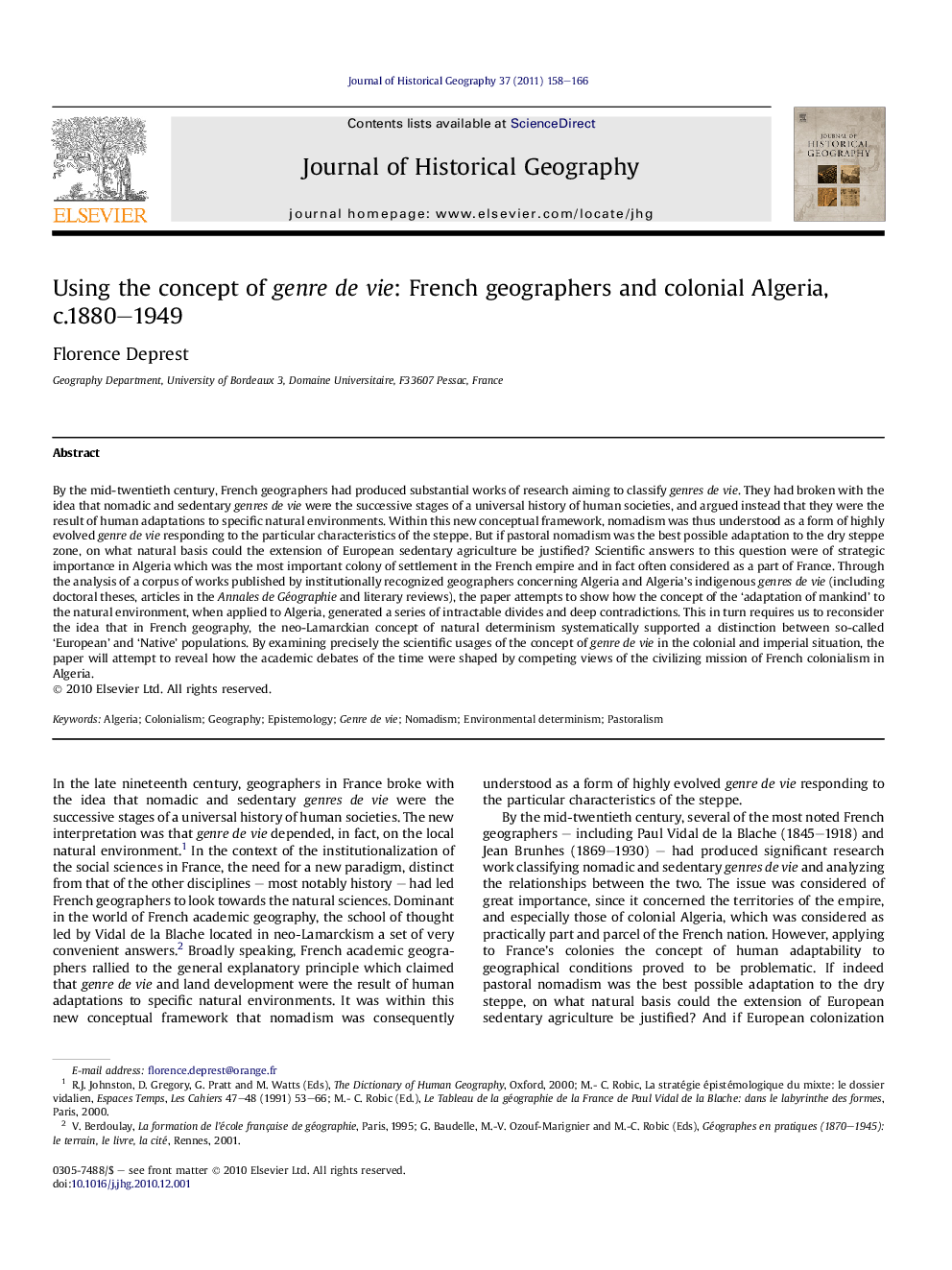| Article ID | Journal | Published Year | Pages | File Type |
|---|---|---|---|---|
| 1039129 | Journal of Historical Geography | 2011 | 9 Pages |
By the mid-twentieth century, French geographers had produced substantial works of research aiming to classify genres de vie. They had broken with the idea that nomadic and sedentary genres de vie were the successive stages of a universal history of human societies, and argued instead that they were the result of human adaptations to specific natural environments. Within this new conceptual framework, nomadism was thus understood as a form of highly evolved genre de vie responding to the particular characteristics of the steppe. But if pastoral nomadism was the best possible adaptation to the dry steppe zone, on what natural basis could the extension of European sedentary agriculture be justified? Scientific answers to this question were of strategic importance in Algeria which was the most important colony of settlement in the French empire and in fact often considered as a part of France. Through the analysis of a corpus of works published by institutionally recognized geographers concerning Algeria and Algeria’s indigenous genres de vie (including doctoral theses, articles in the Annales de Géographie and literary reviews), the paper attempts to show how the concept of the ‘adaptation of mankind’ to the natural environment, when applied to Algeria, generated a series of intractable divides and deep contradictions. This in turn requires us to reconsider the idea that in French geography, the neo-Lamarckian concept of natural determinism systematically supported a distinction between so-called ‘European’ and ‘Native’ populations. By examining precisely the scientific usages of the concept of genre de vie in the colonial and imperial situation, the paper will attempt to reveal how the academic debates of the time were shaped by competing views of the civilizing mission of French colonialism in Algeria.
